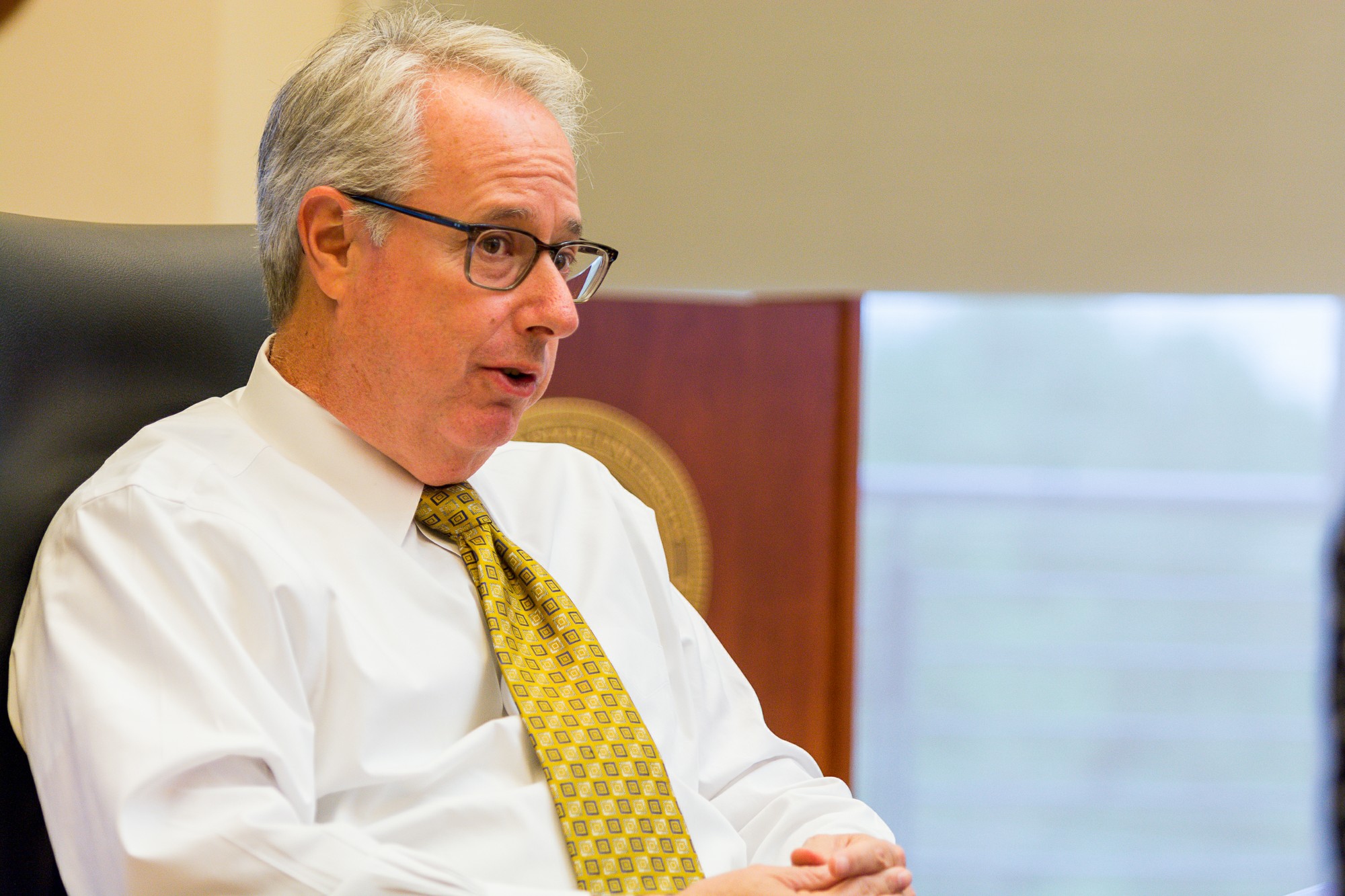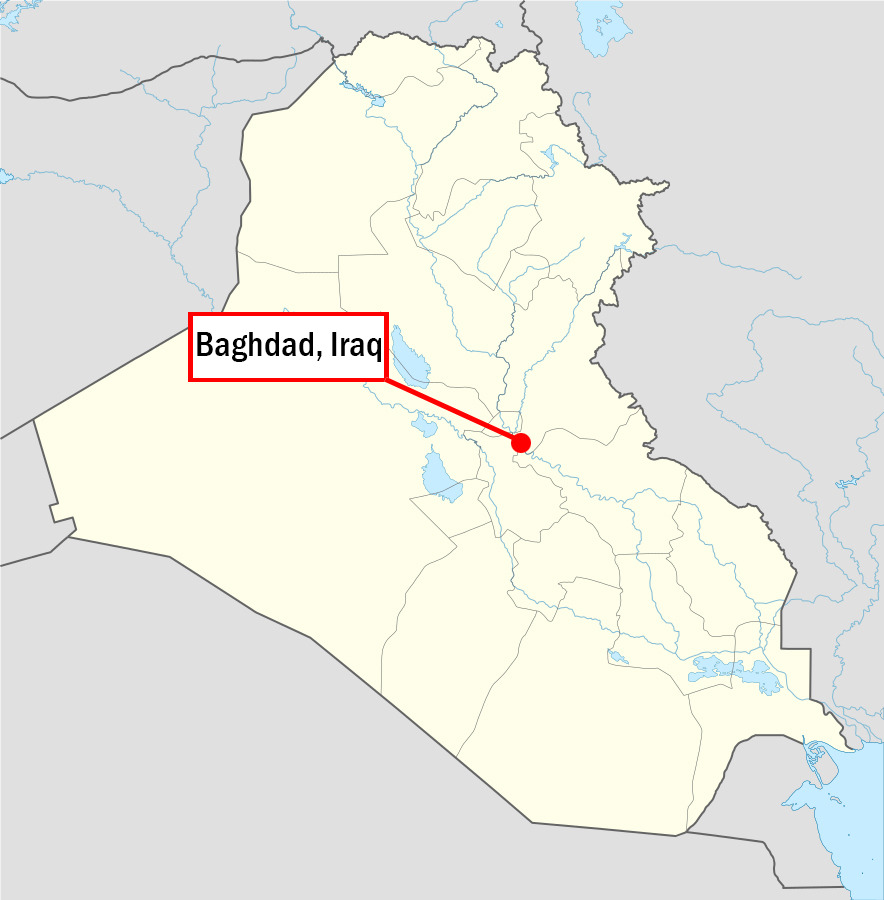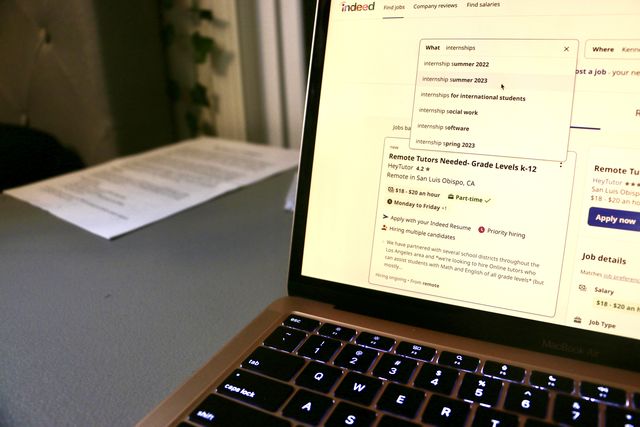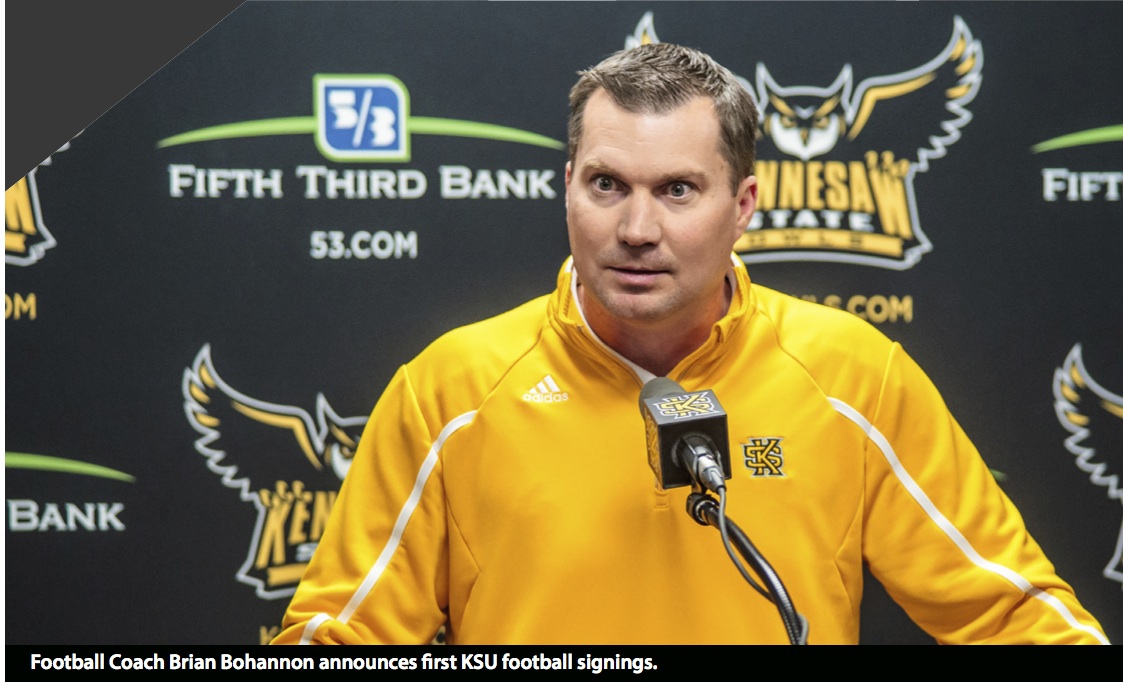EDIT: The original article incorrectly stated that the previous dining services contract included “a $750,000 catering budget just for the former president.” This amount was actually $50,000 per year to be used at the discretion of the president. This line has been removed from the online version of the article. The Sentinel’s goal is always to ensure accuracy and clarity, and the writer never intended otherwise.
In June 2016, the University System of Georgia released a series of audits that detailed financial misconduct at Kennesaw State University. The audits include allegations that span everything from dining services’ $5 million debt to the KSU Foundation funding car payments for the former president every three years.
One year later, President Sam Olens sat down with The Sentinel to address the university’s progress and financial standing.
Dining Deficit
The biggest hurdle is dining services’ $5 million deficit. Many of the eateries on the Kennesaw campus have been consistently losing money each year, sometimes totaling as much as $200,000. This year, Olens said, the university is set to break even.
“The goal is that we will make a dent in the deficit by this next fiscal year,” he said.
But breaking even is a start, and Olens said it took plenty of changes to get to that point. Contracts with third-party vendors were amended per suggestion from the USG. Additionally, dining services transitioned from being run by a third-party vendor to a model of self-operation this summer.
Self-operating the facilities means the university can better manage waste, costs, personnel and other factors that affect the bottom-line without paying a middleman.
“It’s a win for the students from the dollars perspective,” Olens said. “From a food perspective, it tasted just as good to me as before. I didn’t notice any difference at all.”
In addition to the cost savings, this model also allows the Leven School of Culinary Sustainability and Hospitality to be more involved in dining services. Third-party vendors would not allow students to cook food or perform other duties, but now these students can apply their learning in a practical environment.
Olens also pointed out that the elimination of mandatory meal plans for commuter students, which will fully take effect during the upcoming semester, was another recommendation from the USG in last year’s audits.
Olens noted, however, that many of these changes had already been put into place when he took office in November 2016.
“A lot of credit goes to the interim president, Houston Davis,” Olens said. “I’ve certainly continued the process that he started.”
Culture of Ethics
He also addressed the many personnel transitions that have occurred over the last year, including adding a new chief business officer, chief legal officer, chief information officer and internal auditor, among other positions. These changes, Olens explained, reflected the university’s dire need for a better culture of ethics.
“It only related to several people — that’s the good news,” he said. “The bad news was the people were high up so that they had more effect.”
As for the audits’ concerns with the integrity of the KSU Foundation, the entity that manages private gifts and contributions to the university, Olens credits Jim Dunn with correcting those problems. Dunn is acting head of the foundation and will officially take over in August.
“The relationship between the foundation and the university — and the foundation and the University System of Georgia — is probably the best it’s been in years,” Olens said. “Jim has done a great job with that. He’s really spent a lot of time to improve those relationships.”
Looking Ahead
Change, Olens said, is a normal part of any university, and most of the major steps to address the audit issues have been completed.
“We’re probably 80 percent through all the processes that were necessary,” Olens said. “It is my expectation that we will complete the journey by the end of August.”
He is now looking ahead to new projects that will affect students on both campuses. A new building, called the Academic Learning Center, is in the works to be built next to the student center on the Kennesaw campus, which Olens said will hold more classrooms. On the Marietta campus, KSU will be expanding Building G and updating the labs.
“There are so many faculty doing great work here, so many students doing great work here,” Olens said. “It was really essential to get past the audits and move to the future. Having said that, you had to clean up the errors before you could do that.”




